The IEEE-PELS Vice President Election will begin 13 October and ends on 11 November 2025. In anticipation of this election, below are the volunteers campaigning for a position within PELS that starts in 2026. Scroll to learn more about each candidate and what positions they are running for.
Meet the Candidates
Vice President Membership
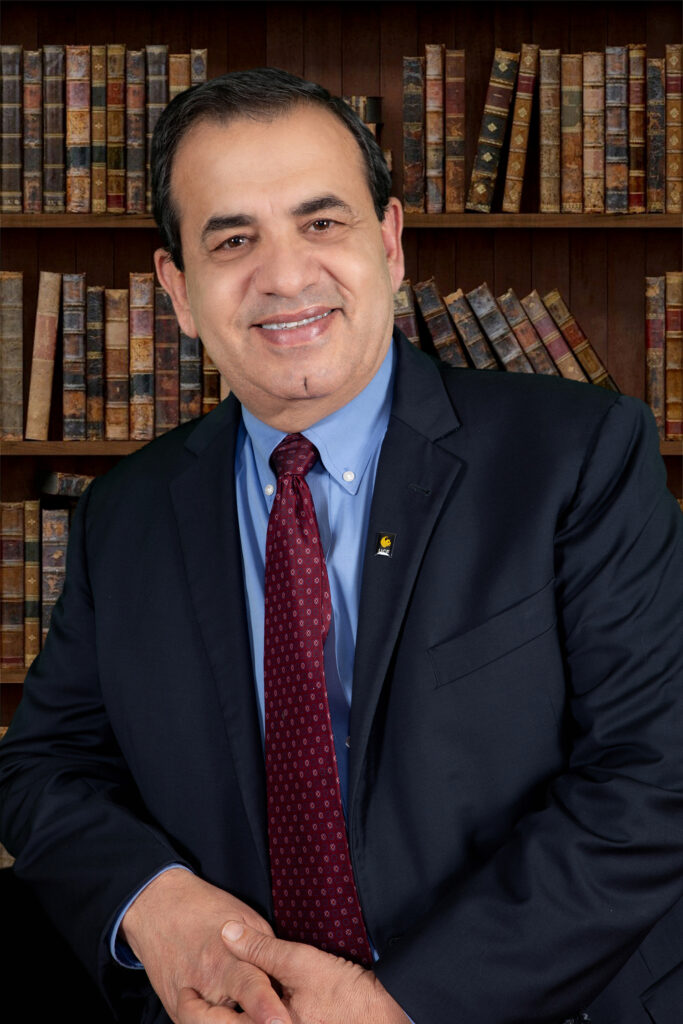
Dr. Issa Batarseh
University of Central Florida (USA)
Position Statement: I have more than 40 years of experience in research, teaching, and industry in power electronics, and it has been my honor to be a steady member of IEEE for 38 years, beginning as a graduate student in 1987. Over the decades, I have served in numerous IEEE leadership roles, received prestigious IEEE medals, and contributed to PELS initiatives. I am honored to have been recommended by the IEEE Nominations Committee to serve as your next VP for Membership.
I believe the strength of IEEE rests on its members including academics and industry engineers, students and faculty, young and senior professionals, women, and those from all world regions, working together globally. If elected, I will focus on aligning membership direction with PELS’ strategic goals, especially those related to energy, AI, scalable solutions, global reach, nurturing student and chapter growth to serve its membership base.
I will continue build on current efforts to:
- Enhancing ways to serve the membership and expand professional diversity with balanced representation across academia and industry, young and senior members, women engineers, and underrepresented regions.
- Deepening industry collaboration by expanding internships, corporate membership programs, and industry-relevant content so IEEE better serves practitioners as well as academics.
- Strengthening student chapters and branches by providing expanded recognition and awards for engaged chapter leaders, supporting mentoring, competitions, and active student involvement.
- Expanding global reach in Southeast Asia & MENA by expanding membership engagement, chapter growth and support, and IEEE visibility in these regions and beyond.
View Biography
Dr. Issa Batarseh is a Pegasus Professor of Electrical Engineering at the University of Central Florida (UCF) and Director of the Florida Power Electronics Center (FPEC). He earned his B.S., M.S., and Ph.D. in Electrical and Computer Engineering from the University of Illinois at Chicago in 1983, 1985, and 1990.
He has held numerous IEEE leadership roles, including Local PE Chapter Chair, Section Chair, Region 3 Mentor, and General Chair for PESC 2007 (renamed ECCE). He is a recipient of the IEEE Millennium Medal and the IEEE Medal for Environmental and Safety Technologies, and has contributed to major PELS/AdCom initiatives such as Empower a Billion Lives (EBL), serving as TC-12 Chair, Educational Committee Chair, and on several other committees.
Dr. Batarseh’s research centers on solar energy conversion, focusing on high-frequency, high-efficiency, and grid-tied photovoltaic (PV) systems. His group pioneered smart microinverters that advanced renewable adoption, improved efficiency, and reduced emissions. He has published over 110 journal articles, 450 conference papers, holds 40 U.S. patents, and authored the widely used textbook Power Electronics – Circuit Analysis and Design (2nd Edition, Springer, 2018). He has mentored 45 Ph.D. and 45 M.S. students, many of whom lead in academia and industry.
His honors include the 2025 IEEE Medal for Environmental and Safety Technologies, the IEEE PELS R. David Middlebrook Achievement Award, and UCF’s Pegasus Professor Award. He is a Fellow of IEEE and AAAS, a member of the National Academy of Inventors, an inductee into the Florida Inventors Hall of Fame, and in 2025 was shortlisted for the Global Energy Prize.
He co-founded Petra Solar, ApECOR, and Portium Power Systems, advancing commercialization of innovative energy technologies. From 2010–2014, he served as President of Princess Sumaya University for Technology (PSUT) in Amman, Jordan, and is a Registered Professional Engineer in Florida.
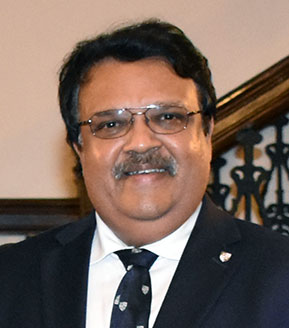
Sanjib Kumar panda
National University of Singapore (Singapore)
Position Statement: I have been volunteering for IEEE PELS for more than 30 years in various capacities. Over this time, I have witnessed firsthand how PELS has developed a robust portfolio of membership growth with a truly global footprint. Membership growth is paramount to the success of both IEEE and PELS, as it is the foundation for advancing the field of power electronics in line with the PELS mission—to serve humanity through innovation and knowledge dissemination.
For the past eight years, I have served on the Membership & Chapter Development Committee as the R10 Coordinator. Under this role, we achieved a sustained membership growth rate of ~8% over six consecutive years. As a result, PELS membership increased from four digits (pre-2016) to five digits (post-2019), with majority of the growth driven by Region-10 through continuous development activities, especially in India and China. Looking ahead, to reach and sustain our target of 15,000 members by 2025 and beyond, we must continue to grow at a rate of around 10% annually. Today, PELS has close to 310 Organizational Units (OUs) worldwide, and to further recognize volunteer contributions, we have expanded the Best Chapter and Student Branch Chapter Awards from one to three in each category beginning in 2024.
If elected as Vice-President, Membership, I will leverage my multi-pronged experience to advance the growth and visibility of PELS across IEEE Societies. My priorities will be to:
- Simplify recruitment and retention processes for membership, making it easier for volunteers to manage OUs.
- Expand the IEEE PELS Corporate Membership program to attract more industry members.
- Broaden the Office Bearers’ Training Program to strengthen volunteer leadership and ensure financially sustainable OU operations.
- Maintain PELS within the top 10 IEEE Societies while striving for even higher ranking.
Finally, I will work to address emerging challenges and opportunities in the membership domain, including keeping membership dues affordable, ensuring equitable access to benefits, and attracting greater participation from industry.
View Biography
SANJIB KUMAR PANDA (S’85-M’92-SM’01-F’21) received his B. Tech. (SVNIT, Surat, India, 1983), M. Tech. (IIT, Varanasi, India, 1987), and PhD (University of Cambridge, UK, 1992) degrees in Electrical Engineering and has been a Faculty at the National University of Singapore since 1992. He has published over 500 technical papers, authored a book and has contributed several book chapters. He is a member of IEEE PELS, IAS, PES and IES, and has served in various leadership roles across these IEEE societies. His contributions have been recognized with several honors including Best Paper awards at the IEEE Conferences IEEE ICSET-2018, IEEE ECCE-Asia 2021 and IEEE PECTEA 2025. He has also received the Singapore Maritime Institute (SMI), Port Challenge Award (2016) and Research Project Award by SMI, Singapore (2018).
Dr. Panda has held multiple editorial appointments, including Co-Editor of the IEEE Transactions on Power Electronics Special Section on Multi Level Converters, Associate Editors for the IEEE Transactions on Power Electronics (2016 – 2024); IEEE Journal of Emerging and Selected Topics in Power Electronics (2016 – 2023); IEEE Access (2020 -2022), Associate Editor for the IEEE Transactions on Industrial Electronics (2016-2018). Associate Editor for the IEEE Transactions on Industry Applications (2016 – 2021), Associate Editor of the IEEE Transactions on Energy Conversion (2016 – 2022). He also serves on the Editorial Board of the Journal of Power Electronics. His professional service includes Chair of the IEEE-ECCE Asia Conference (2021), leadership in the IEEE Transactions on Energy Conversion Coordinating Committee, and as the Regional Coordinator (R10) for the PELS Membership and Chapter Development Committee. He has also served as Chair of the IEEE PELS TC-12 (2022–2024) and as General Organizing Co-Chair of IEEE ECCE-Asia 2025, Bengaluru, India. Dr Panda is currently a member of the IEEE PELS Members-At-Large (2025 – 2027), IEEE PELS Conference Committee and Chair of the IEEE PELS ECCE-Asia Conference Coordination Committee.
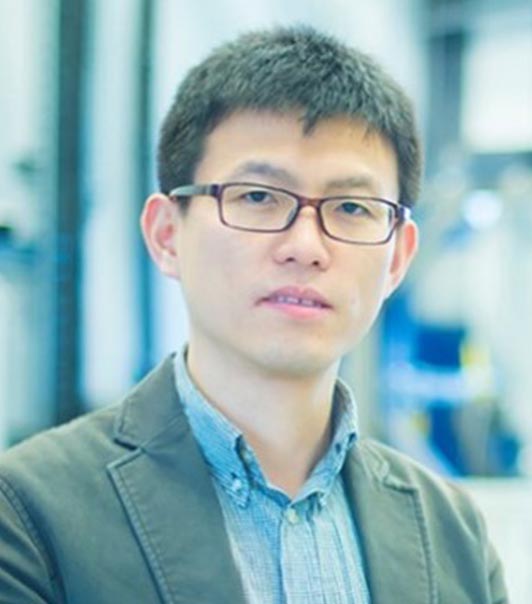
Dr. Tao Yang
University of Nottingham (UK)
Position Statement: As a PELS Membership Committee member and Vice Chair of Region 8, I developed and executed a membership growth roadmap for the UK/Ireland Chapter that achieved a 30% membership growth and 3 new Student Branch Chapters (SBCs) in under a year. These SBCs became vibrant hubs offering webinars, guest lectures and networking opportunities etc, to attract and retain students and young professionals. Their success has inspired strong interest across Region 8, with several universities preparing to launch branches following ECCE-Europe 2025.
As Vice President for Membership, my vision aligns with the PELS 2026–2030 Strategic Plan:
- Global Membership, Influence and Impact: Expand and diversify PELS membership through partnerships with industry and national societies such as the European Centre for Power Electronics and Power Electronics UK. Targeted outreach with local chapters, industry partners, and regional organizations will enhance global presence.
- Customizing Member Benefits: Establish measurable targets and KPIs to track growth, engagement, satisfaction, and regional outreach. Tailor offerings by career stage and geography, providing region-specific webinars, language-accessible resources, and local chapter support for students, early-career professionals, industry, and retirees.
- Enhancing Engagement and Value: Improve accessibility to PELS products and services, pilot Chapter Annual Conferences with industry sponsorship and recruitment fairs, and conduct surveys to align offerings with the needs of students, engineers, and academics.
Investing in Marketing Campaigns: Use region-specific social media, how-to videos, and member-focused apps to boost visibility. Share success stories, technical breakthroughs, and outreach initiatives to highlight power electronics’ role in sustainable energy, advanced transportation, and societal benefit.
View Biography
Dr. Tao Yang received his Ph.D. in Electrical and Electronic Engineering from the University of Nottingham, UK, in 2013, where he is now Full Professor of Aerospace Electrical Systems. His research focuses on aerospace power electronics and high-speed motor drive systems, with applications in next-generation aircraft. He has authored over 140 peer-reviewed papers, five book chapters, and currently leads a team of six Ph.D. students and 20 postdocs developing MW-level hydrogen-based electric propulsion powertrains for net-zero aviation.
Dr. Yang’s pioneering work has driven collaborations with leading industry and academic partners, including Safran, Airbus, Leonardo Aircraft, Dassault Aviation, Rolls-Royce, University of Stuttgart, The Ohio State University, University of Wisconsin–Madison, Fraunhofer, and the Technical University of Denmark. His contributions have been widely recognized, earning the inaugural EU CleanSky Best PhD Award and multiple Best Paper Awards from IEEE Transactions on Industrial Electronics (2020), Industry Applications (2022), and Transportation Electrification (2023).
An active IEEE Senior Member, Dr. Yang has shown outstanding leadership in membership development. As Vice Chair for IEEE PELS Region 8, he spearheaded initiatives that grew the UK/Ireland Chapter by 30%, established three new Student Branch Chapters in under a year, and significantly increased engagement among students and early-career researchers. His work has been highlighted as a model for regional membership growth.
Since 2023, Dr. Yang has served as Chair of the IEEE PELS Technical Committee on Power Electronics for Aerospace Applications (TC11), expanding membership to over 450 professionals worldwide and strengthening its flagship PEASA workshop, which will expand to Europe, Asia, and North America by 2026. He also serves as a PELS Representative on the IEEE Transportation Electrification Council’s Administrative Committee, ensuring PELS plays a central role in advancing transportation electrification.
Vice President Education
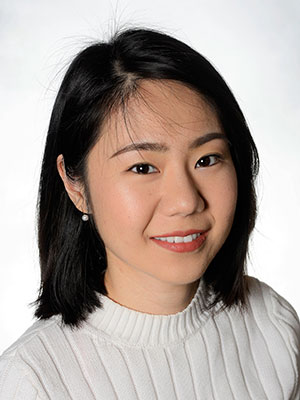
Han (Helen) Cui
Tianjin University (China)
Position Statement: I feel deeply honored to be nominated as a candidate for IEEE PELS Vice President of Education. My journey with PELS has been one of continuous growth, gratitude, and service, and I am inspired by the chance to give back to our community in this important role.
Elected, I would like to devote my efforts to the following areas:
- Strengthen global educational connections. I will work to expand PELS’s educational footprint worldwide, leveraging the vibrant network of schools, teachers, and students in China and Asia-Pacific while fostering stronger ties with our colleagues across the globe.
- Enhance student and young professional engagement. I plan to create more mentoring opportunities, hands-on training, and accessible digital resources to help nurture the next generation of power electronics leaders.
- Promote inclusive and diverse participation. Education thrives on diversity. I will encourage broader representation of women, early-career professionals, and underrepresented regions through targeted initiatives and events.
- Advance innovative learning platforms. Building on my experience with the PELS website, PELSWiki, Research Map, and P3 Talks, I will champion new formats—workshops, webinars, and collaborative forums—that make learning more dynamic, global, and impactful.
Serving as Vice President of Education would be both an honor and a responsibility. I embrace this opportunity with passion and commitment, and I will work wholeheartedly to ensure PELS continues to be a home for excellence, collaboration, and education in power electronics.
View Biography
Han (Helen) Cui (S’12–M’17–SM’22) received the B.S. degree in electrical engineering from Tianjin University, Tianjin, China, in 2011, and the M.S. and Ph.D. degrees in electrical engineering from the Center for Power Electronics Systems (CPES), Virginia Tech, Blacksburg, VA, USA, in 2013 and 2017, respectively. Upon graduation, she joined the Department of Electrical and Computer Engineering at the University of California, Los Angeles, as a postdoctoral researcher, where she advanced magnetics modeling for high-frequency power applications. From 2020 to 2023, she was an Assistant Professor with CURENT at the University of Tennessee, Knoxville, where she secured over $1 million in research funding from U.S. government agencies and industry, and consistently earned top teaching evaluations (rank A in all courses). In 2023, she became a Full Professor at Tianjin University, China. Her current research interests include high-density magnetic design and integration, wide-bandgap (WBG) power module packaging and EMI analysis, and microscopic magnetic material characterization. She is the recipient of the 2024 IEEE IAS William M. Portnoy 3rd Prize Paper Award, the ECCE 2023 Student Demo Award, and a Notable Mention in the 2023 IEEE PELS MagNet Challenge.
She is the Publicity Chair of the IEEE Power Electronics Society (PELS), where she spearheaded the redesign of the PELS website and led initiatives such as PELSWiki and the Research Map projects. The new PELS website, launched in 2024, won three international design awards. She also serves on the Digital Media Committee, contributing to PELS P3 Talks (2023–2024). In addition, she is an Associate Editor of the IEEE Transactions on Transportation Electrification and an active reviewer for multiple PELS-sponsored journals. She serves as a PELS Member-at-Large (2024–2026) and is an organizing committee member of FEPPCON 2024, LRP 2025, and FEPPCON 2026.
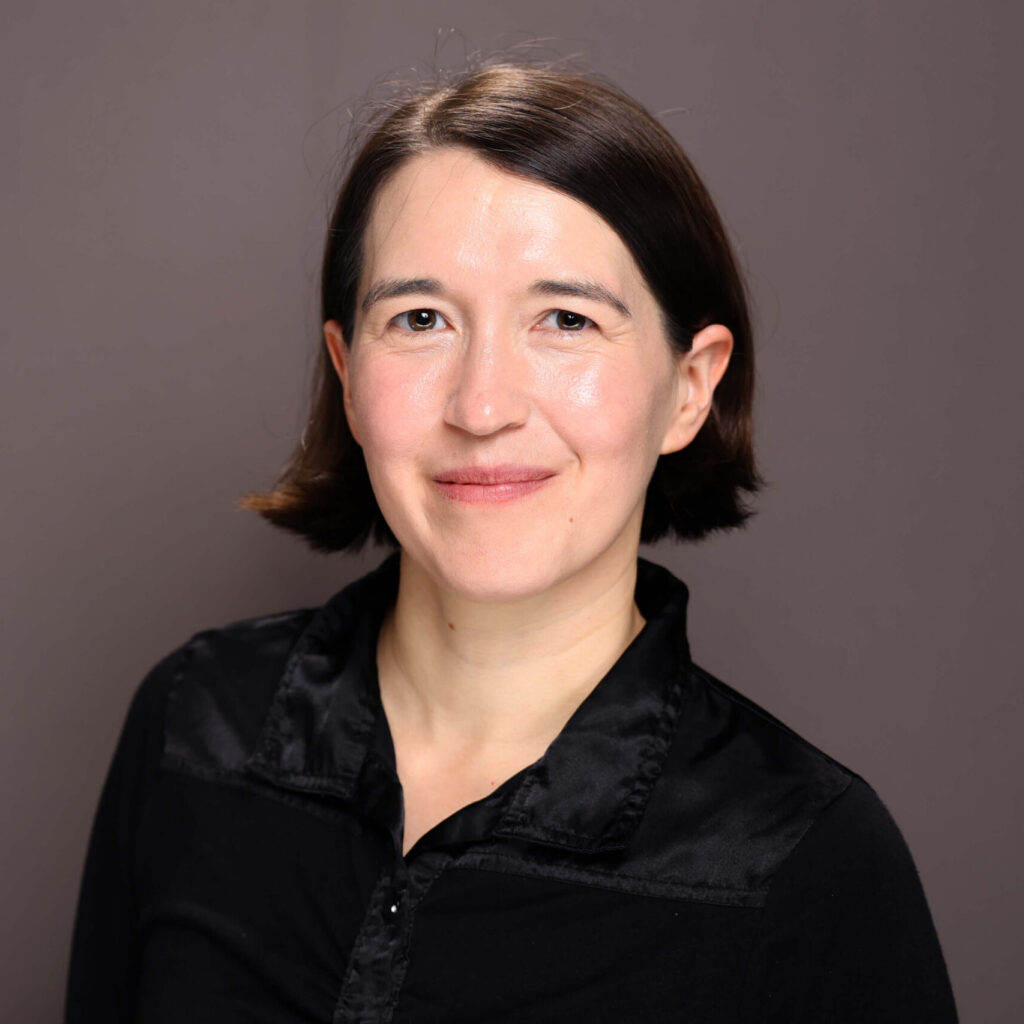
Katherine Kim
National Taiwan University (Taiwan)
Position Statement: If elected as VP of Educational Activities, I will continue to use the core values of engagement, accessibility, and belonging to steer the many educational activities that PELS brings to the power electronics community. PELS educational programs, such as PhD Schools programs, power electronics kits, student competitions, and educational videos, have been growing over the past couple of years; I plan to help expand their reach while streamlining administrative processes and improving process transparency. In addition, I hope to bring PELS online courses into fruition as a direct and concrete benefit of being a PELS member. My travel opportunities may be limited due to family commitments during the term, but I will continue to leverage online meeting tools for effective global collaboration. My primary focus in this position is to listen to what members at all levels need, bring together volunteers with diverse global perspectives, and enable the activities/tools/products with long-lasting educational impact.
View Biography
Katherine A. Kim is a Professor of Electrical Engineering at National Taiwan University (NTU), Taipei, Taiwan. Dr. Kim served as the VP of Educational Activities (formerly VP of Global Relations) from 2024 to 2025. She received her B.S. degree in Electrical and Computer Engineering (ECE) from Olin College of Engineering and her M.S. and Ph.D. in ECE from the University of Illinois at Urbana-Champaign. She received the IEEE PELS Award for Achievements in Power Electronics Education in 2022, the IEEE PELS Richard M. Bass Outstanding Young Power Electronics Engineer Award in 2019, and the Innovator Under 35 for the Asia Pacific Region by the MIT Technology Review in 2020. Dr. Kim strives to make power electronics more accessible and engaging for people worldwide.
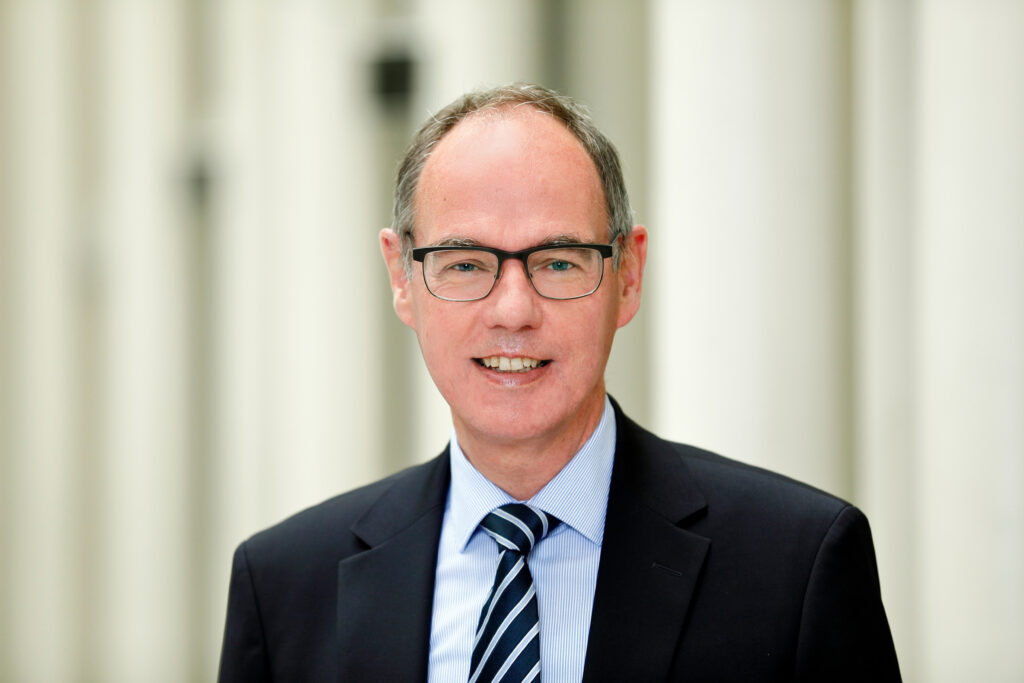
Axel Mertens
Leibniz Universität (Germany)
Position Statement: Education a strategic topic for PELS according to the Strategic Plan 2026-2030. The goal is to become the “Trusted Source for Lifelong Education”. But how do we get there? We undoubtedly need a lot of educational content and materials. This has to be made accessible to members and non-members in a clear and easy-to-find manner. We already have achieved a great deal with materials like podcasts and PELSTube, webinars and Ph.D.Thesis Talks, Ph.D.Schools, the IFEC, the EBL initiative, the Highscool outreach including STEM hardware kits and more. On top, we have a large number of tutorials running at the conferences. But my vision is going beyond that. First, we should be aware who the customers are and how to serve them best. Education starts in (high) school and academia, but continues in a lifelong learning process. Also, it is regional by language and culture. And we should consider not only end consumers of education but also multipliers – like lecturers, professors and teachers – what do they need to teach power electronics even better? Second, we should learn from the success of IEEE with papers. It is a self-supporting scheme, run by highly motivated authors and volunteers. In education, we should also try to get there. We should define a system of benefits for the content providers, a visible measure of success, and of course IEEE PELS should also benefit in some way from the downloads. Third, content should not only be provided by PELS members and PELS initiatives. We should also motivate individuals and organisations beyond PELS to contribute. We should reach out and bridge to other organisations as well, offering them a channel to increase their own visibility and reach. If elected I would be committed to guide the process, together with the standing committee as well as the society board, to set PELS on track towards being a great international player in providing and distributing educational content and material world-wide to the multipliers and consumers in all stages of education.
View Biography
Axel Mertens:
What qualifies me for the role of VP of Educational Activities is as follows.
1) Working experience of more than 10 years in industry, almost 20 years in academia, and in parallel, more than 10 years in a Fraunhofer research institution. I know the needs of all levels of education in power electronics from my own experience, including life-long learning in industry. In industry, I have been working several years as a product manager, so I am trained and experienced in how to define products that fit well with the market requirements.
2) Teaching experience: almost 20 years of teaching Bachelor, Master and Ph.D. students; more than 15 years of experience in training of industrial employees in power electronics and drive systems. I have designed and conducted 5 lectures for B.Sc. and M.Sc.. I also have designed and conducted 4 different training courses for employees from industry, teaching them fundamentals as well as advanced topics in power electronics and electric drive systems. Having trained hundreds of participants from industry, these courses and myself as a lecturer continuously receive top-grade evaluations.
3) Leadership experience: Besides leading my own teams in industry, in academic research and in research institutions, I have started the research group in Power Electronics and Control of Drives from zero. The result was the largest group in the department of electrical engineering of my university with up to 35 research associates/Ph.D. students. On top, I have served as the Dean of the department of electrical engineering and computer science for several years. I have leadership experience in IEEE as a board member and Chairman of the award-winning IEEE IAS/PELS/IES Joint German Chapter, as PELS AdCom Member for two election periods, and – last but not least – as the General Chair of EPE / ECCE Europe 2022 in Hannover. It was the first live conference after the Corona pandemic, and in spite of the associated risks, it was a great success with a well-coordinated technical program, many new sponsors from industry, over 800 participants and one of the largest surpluses of this line of conferences ever.
Vice President Industry and Standards
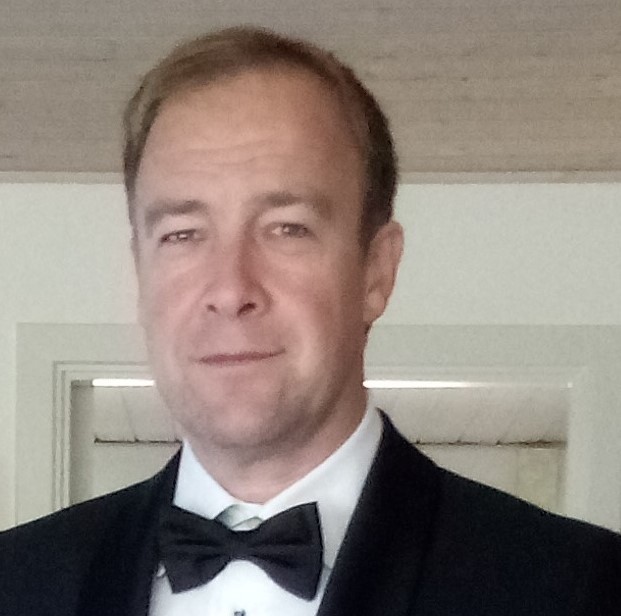
Philip Carne Kjaer
Vestas Wind Systems A/S (Denmark)
Position Statement: PELS’ value to – and from – the practicing power electronics engineer is my priority and drive to engage in the AdCom and present my candidature for the Industry & Standards Committee. Between academia’s research ideas reaching the product design labs and real-world best practice transmitted back to the community at large: PELS offers the muscle to impact widely.
With 30 years in industrial RD&E, I have enjoyed bringing both volume products and one-offs to market, requiring technology maturation whilst being constrained on cost and time. It is in this context I view the benefits of engagement in PELS – present and future – both as design engineer and manager. And both must identify the value to motivate engagement.
Most RD&E is organized in projects, and PELS can potentially speak to methods and competence of relevance to all aspects of the value chain: systems engineering, formulating the good requirement and verification, design-for-X (X=reliability, supply chain, manufacturing, service), certification, cradle-to-grave lifecycle mngmt, IP, and not least: skills, training and career development. Through existing data and communication with our members, the I&S committee can identify priorities and format of information to collect and distill. Initiatives in neighbouring PELS Committees should be used for further momentum.
With my European base and tied to renewable energy technology, my work with standards admittedly has been with IEC, Cigré, UL, IEEE PES, in that order. Especially in the cross-section of power electronics, power systems, and electrical safety. Here, I do see PELS growing a recognizable profile and impact through home-grown initiatives, but possibly moreso by liaison with neighbouring societies and organizations. There is certainly plenty of room for more power electronics expertise in working groups beyond our society. An overview and schedule of standards in the making or under revision is the starting point for a multi-year programme.
View Biography
Philip Carne Kjaer (M’92, SM’11) is Chief Specialist in electrical power technology with Vestas Wind Systems, in Denmark, where he has worked since 2003. He holds principal responsibility for technology and product development of wind turbine converters, controls and HV apparatus, and has previously developed products for power plant controls, reactive power compensation and energy storage add-ons.
Dr. Kjaer received his M.Sc. in EE from Aalborg University, and his Ph.D. from University of Glasgow, where he was research assistant from 1993 to 1998, working with advanced control of switched reluctance machines and drives. From 1998 to 2003, he was with ABB Corporate Research, Sweden, as development engineer and manager, working on a variety of technologies, including large drives and HVDC. He was part of the team behind the HVDC-VSC connection for offshore compression on the Troll gas platform.
Since 2013, he has been associated part-time professor with Aalborg University, researching in medium voltage dc power conversion. He holds in excess of 100 scientific publications and has over 30 patents granted.
Dr. Kjaer is Eur.Ing and member of FEANI, a Chartered Engineer in the U.K. and has been member of IET since 1994. Since 2010 he has served in Cigré’s Danish National Committee and served 4 years as the Danish representative of Cigré study committee B4. Further, he contributes to IEC working groups S-522, S-508. Dr. Kjaer serves on steering committees of IEEE conferences, and has acted as reviewer for conferences and journals, alike.
Coming out of office in 2021, he was treasurer since 2009 and member of the executive committee since 2007 of the EPE (European Power Electronics and Drives Association). Dr. Kjaer has been IEEE PELS AdCom member since 2022. He received the Richard M. Bass Outstanding Young Power Electronics Engineer Award 2004.
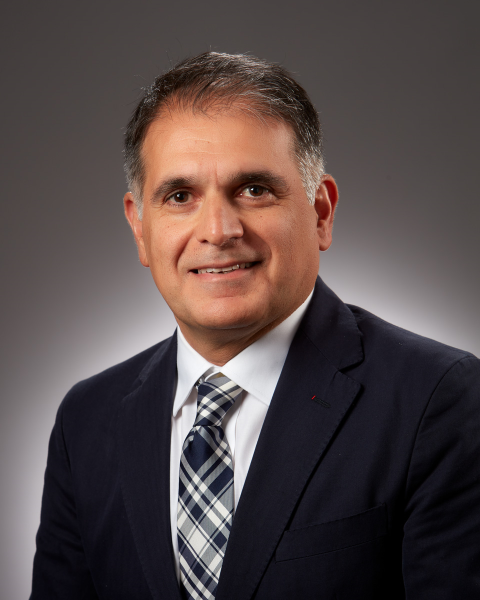
Navid R. Zargari
Rockwell Automation (Canada)
Position Statement: The goal of our society is to increase our value and appeal to power electronics engineers and industry partners. Through this goal we can achieve sustainable growth and continue to serve our members. Power Electronics is a bridge technology amongst multiple disciplines. We need to develop standards that ensure consistent methodologies and metrics for developing products that are safe, sustainable and long-lasting. The role of the standards community goes beyond sustaining and updating standards for mature technologies and is even more important when it comes to new technologies as they are adopted and find their way into Power Electronics research, product development and evolving markets. We need to ensure we stay at the forefront of the new technology, engage with various technical communities and disciplines and take a proactive role in developing standards for efficient and reliable products. As VP of Standards, I would work towards achieving these goals by updating existing standards, increasing industry engagement and participating in new standards development. We need to highlight the importance of standards and their impact on the betterment of the global society and the participants of the product development cycle (researcher, designer, manufacturer, customer). Through this activity we can then emphasis and encourage members participation and recruit new and diverse voices in standards development.
View Biography
Navid R. Zargari (M’94, SM’08, F’15) received the B.Eng. degree from Tehran University, Iran, in 1987 and the M.A.Sc. and Ph.D. degrees from Concordia University, Montreal, QC, Canada, in 1991 and 1995 respectively.
He has been with Rockwell Automation Canada since 1994, as a senior designer, researcher and recently in a variety of R&D leadership roles. For the past 30 years he has been involved with design of power converters for AC drives. His research interests include power converter topologies and their control aspects, power semiconductors and renewable energy sources. He has co-authored more than 100 research papers and two books: “Power Conversion and Control of Wind Energy Systems” and “Modular Multilevel Converters: Analysis, Control and Applications”. He holds more than 40 granted/pending patents in areas of power converters and medium voltage applications.
Dr. Zargari is an active member/volunteer of IEEE. He is Co-EiC of IEEE Transactions on Power Electronics, and AE of IEEE Open Journal of Power Electronics. He has served on various ECCE conferences (Technical program Co-Chair ECCE2022, ECCE2020, Exhibit Chair ECCE 2016, Exhibit Co-Chair ECCE2015).
He is registered as a Professional Engineer in the Province of Ontario and was the recipient of the Premier’s Innovation Award for the Innovator of the year from the Province of Ontario in 2009.
